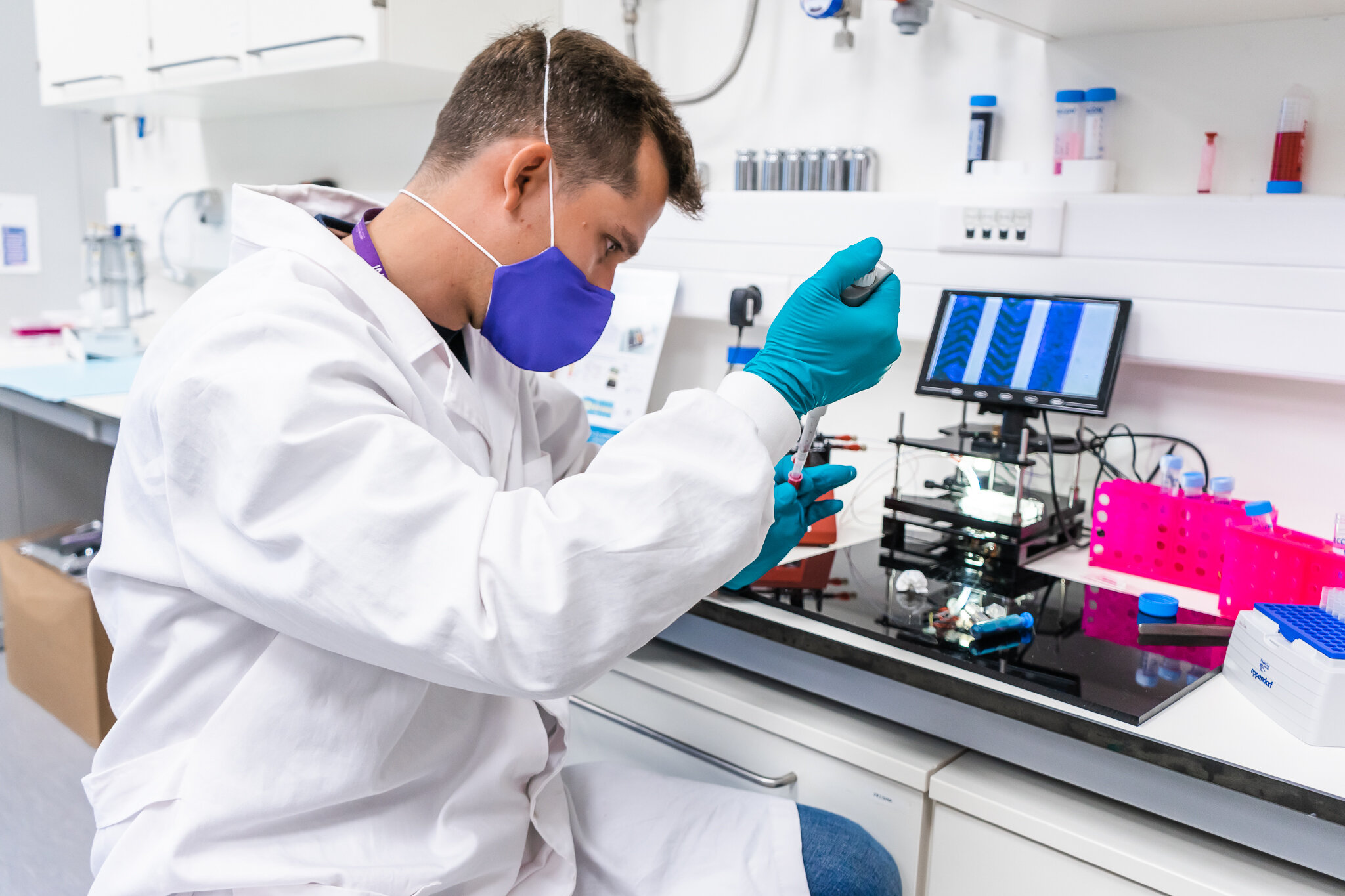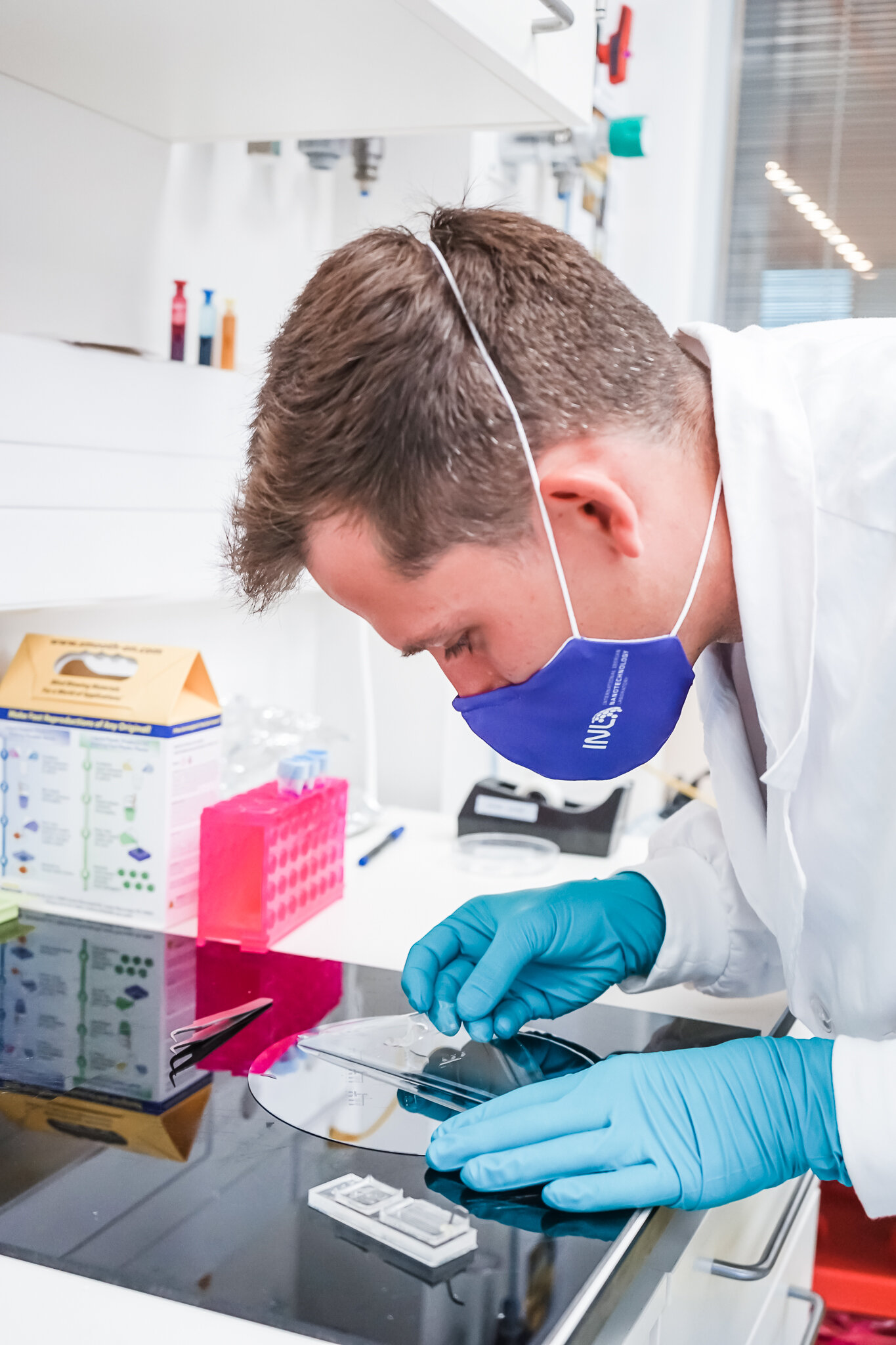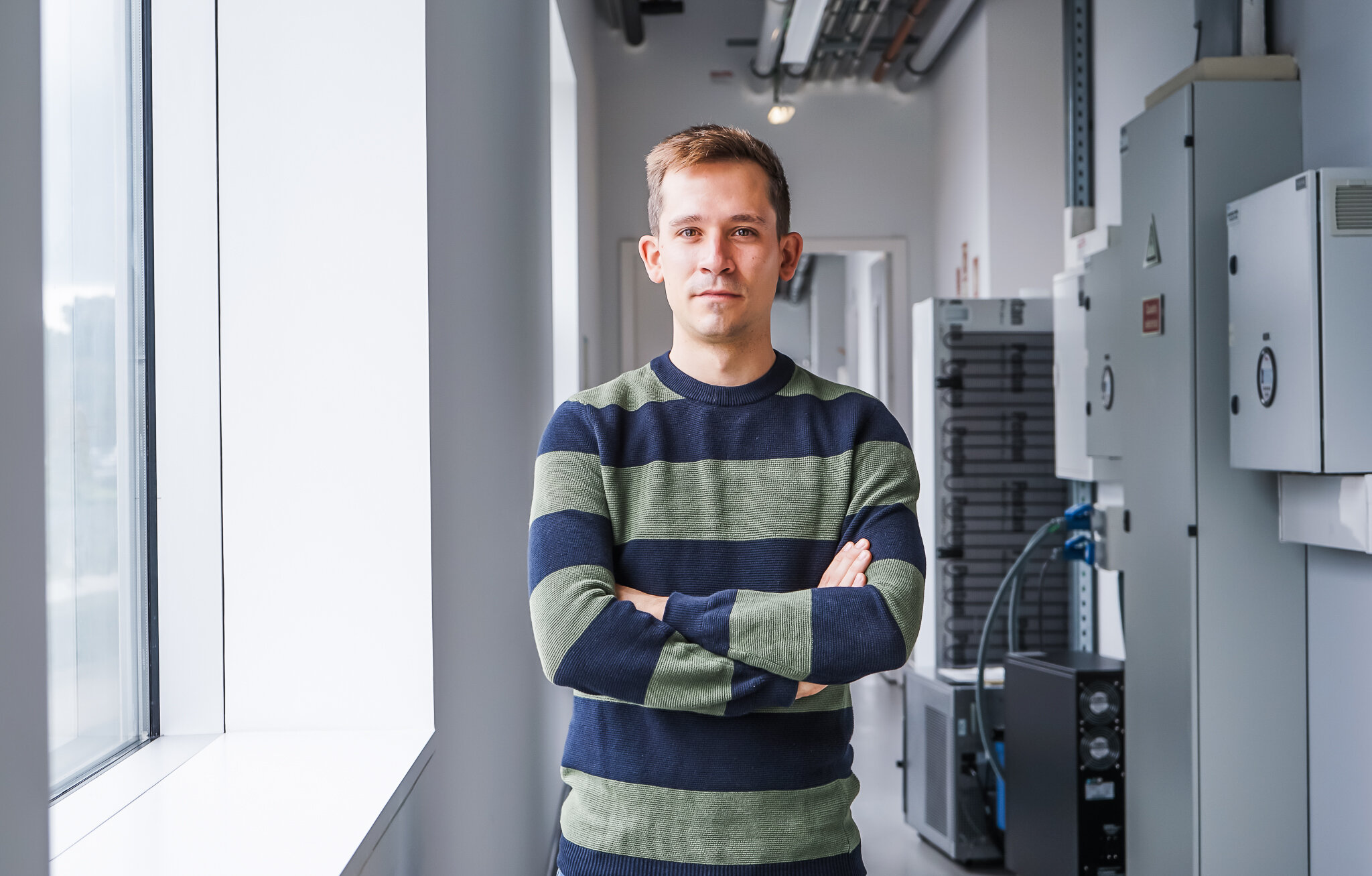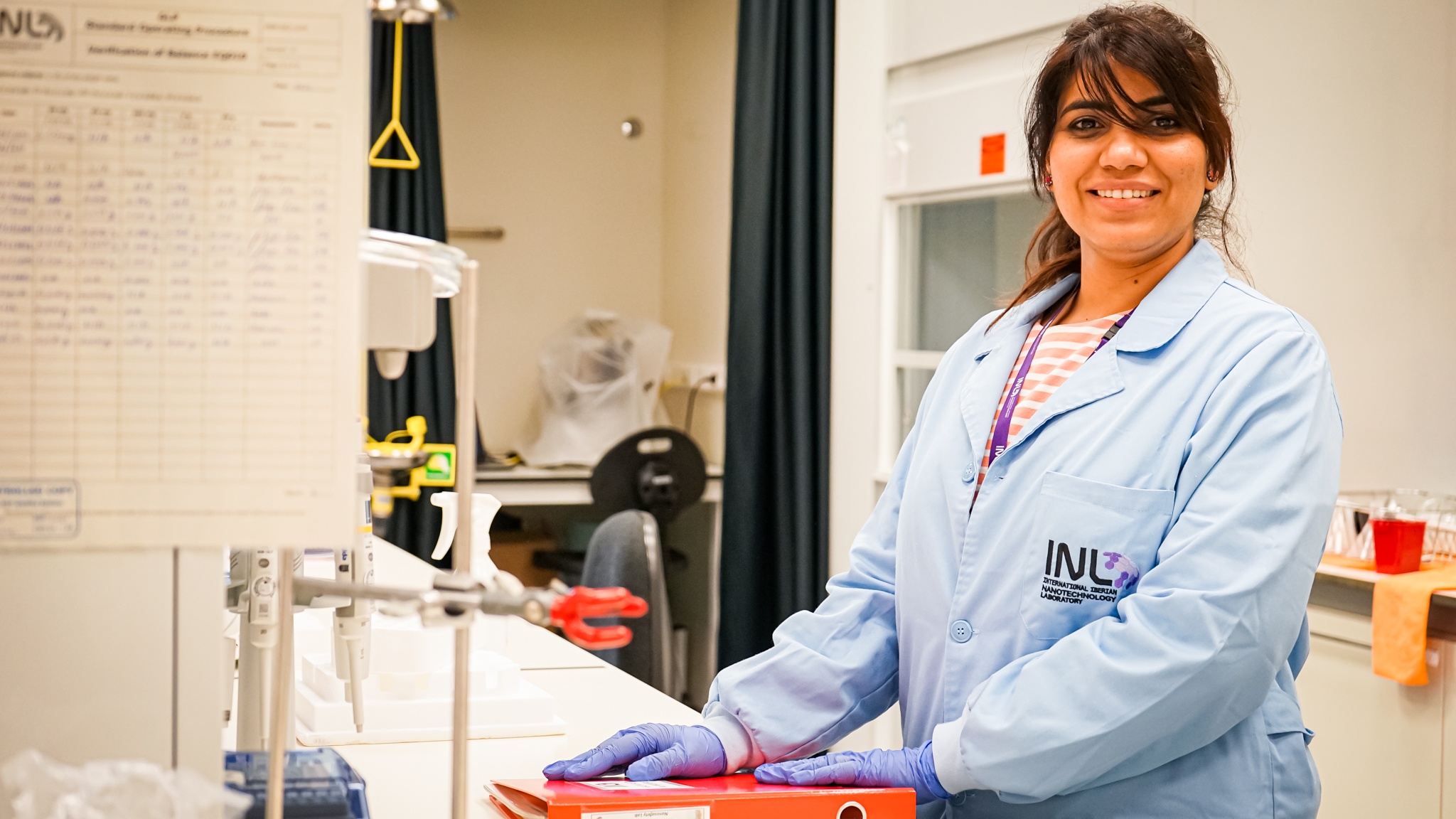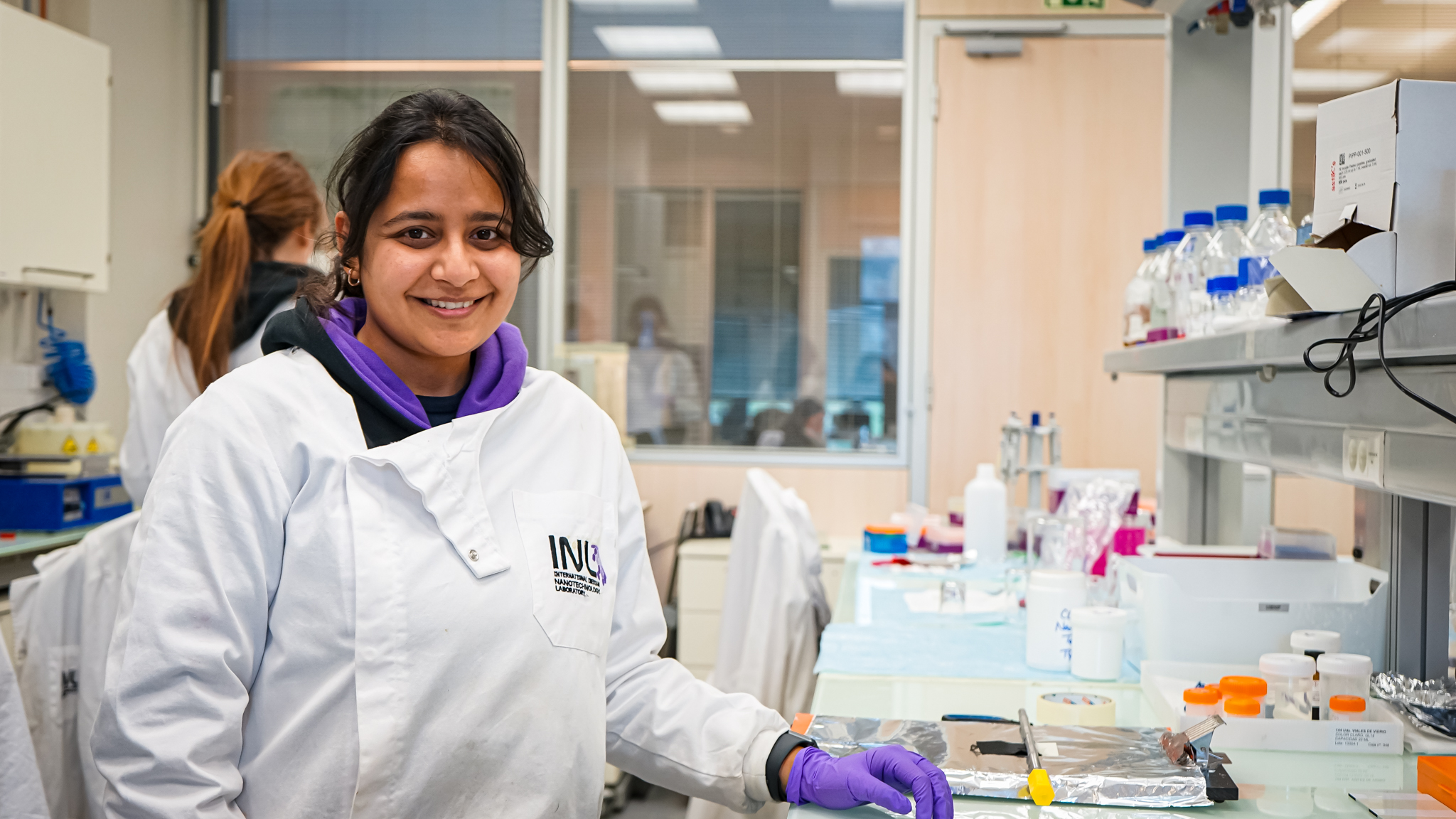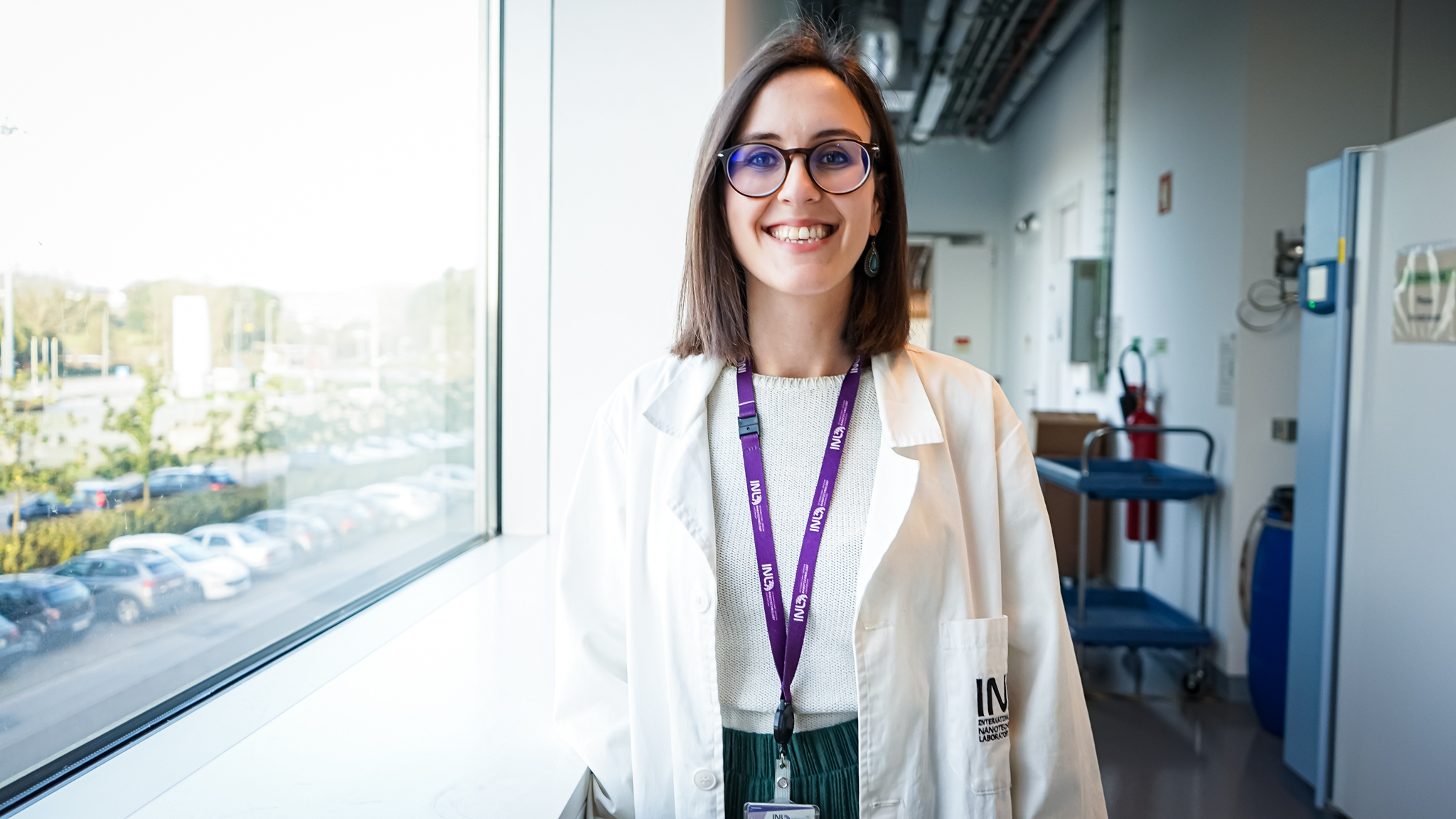
Interview with Miguel Xavier, Marie Curie grantee working at INL
October 30, 2020
Miguel Xavier is a Research Fellow at the INL working in the Food Processing & Nutrition research group. Miguel’s work focuses on the development of a new Gut-On-Chip platform to assess the bioavailability and safety of orally administered compounds.
Miguel obtained his PhD from the University of Southampton – UK and since 2016 Miguel was the first author of 6 publications in international peer-reviewed journals. Miguel has also secured funding to support his research and received scientific awards including the Gold Medal for Excellence in Engineering by a Young Researcher at the STEM for Britain competition held in the UK at the houses of parliament.
He was recently distinguished by the European Commission with an individual Marie Curie Fellowship in a total worth of160 thousand euros. GASTRIC is the name of the award-winning project and is focused on the development of an automated device that simulates the digestion and intestinal absorption of drugs or food supplements taken orally.
Miguel, please tell us a little about yourself. Where are you from and what is your research background?
I am originally from Guimarães, which is a beautiful city very close to Braga. There is actually a big historical rivalry between the two cities and my old friends and family still ask me today what made me move here and work at INL. It is pretty much considered treason…
I graduated as a Biomedical Engineer from the Faculty of Engineering of the University of Porto in 2012. I later joined the University of Southampton in the UK in 2014 for my PhD studies, which is where I started working with microfluidics and lab-on-a-chip. The goal of my PhD project was to develop a microfluidic device to isolate stem cells from human bone marrow to be used in regenerative medicine targeting the formation of new bone and cartilage. I have been working with microfluidics and its applications to life sciences ever since.
Can you explain the GASTRIC project and its benefits? And why did you choose to apply for this particular project?
GASTRIC will fabricate modular devices based on microfluidics to a) simulate the intricate processes of digestion that occur in the human gastrointestinal tract and b) study the intestinal absorption of the digested compounds using a cell-based dynamic model replicating the human gut, a so-called organ-on-a-chip. The project aims to provide a definitive answer to the lack of robust and sensitive tools to predict the digestion and absorption of orally ingested compounds, being either drugs or food supplements. The benefits can be substantial because the low predictive capacity of the current methods is behind the failure of many new candidates in costly late-phase clinical trials. This leads to the estimated cost of development of a new drug currently surpassing on average 1 billion US dollars.
GASTRIC will provide continuity to existing research in the Food Processing & Nutrition group, within the MICRODIGEST project led by Catarina Gonçalves. This will contribute to the executability of the project and increase the likelihood of delivering a device that can have a real impact in society, which for me is always a priority.
In retrospect, which elements you think were decisive in you being successful in your application?
It’s always a gamble and there is a little bit of luck involved, but I am sure that it was fundamental to start preparing my application with plenty of time and way ahead of the deadline. In addition, pairing up with a fantastic host institution (the INL), as well as with renowned international partners (the University of Southampton and GlaxoSmithKline, in the UK), which will add important know-how to the project, have definitely strengthened my application. However, the infinite discussions I had with many colleagues about the ideas behind the project have probably been the most decisive.
As a researcher, which goals and ambitions do you have for your future career?
It is my personal ambition to become an independent researcher in the field of microfluidic devices applied to Life Sciences. I have a particular passion for applications within the medical arena and I hope to drive the development of innovative device concepts and applications with a direct impact in people’s quality of life by contributing towards superior health care and higher environmental sustainability.
